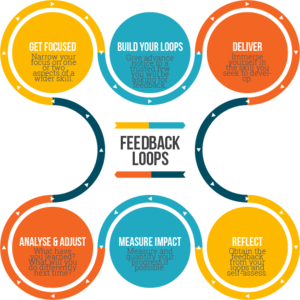A big part of my job is helping people make the positive changes they want to make – professionally and personally. I have these discussions with my clients every day throughout the year but it is this time of the year when many people consider making some level of change, often in the form of New Year’s resolutions.
Whether you are implementing a resolution or considering breaking bad habits and introducing new ones, I thought I’d share some helpful tips learned through trial and error and working closely with my clients.
1. Embrace Gradual Progress
You are more likely to succeed if you expect evolution, not revolution. Shift your perspective from expecting instant change to recognising personal growth as a gradual journey. Don’t think of making a fresh start but instead as a series of smaller, manageable steps. For instance, if you aim to enhance your professional skills, start by dedicating 10 minutes daily to learning a new aspect of your field. These incremental changes are easier to sustain over time. Ten minutes a day of learning is better than no minutes of learning a day because you can’t find time for an hour. Start small and work your way up.
2. Define Your “Why”
Establish a compelling reason driving your resolution, ensuring it holds personal significance and excitement. Reflect on the meaningful impact of the change. If you’re considering a professional development goal, connect it to your overall career fulfillment and aspirations. If it isn’t important and exciting to you, then you are thinking about the wrong changes. You could also consider that maybe you don’t need to change. It is likely you are perfectly fine just the way you are.
3. Embrace Setbacks as Part of the Process
Change is hard. Acknowledge that setbacks are natural in any change process. Understand that there will be good and challenging days in equal measure. When facing obstacles, remind yourself of the progress made and find ways to celebrate your small victories. Positive reinforcement and self-compassion play crucial roles in maintaining your momentum.
4. Build Flexibility into Your Plan
Allow flexibility in your routine to minimize setbacks – perceived or real ones. Instead of rigid schedules, set general goals. For example, if networking is a focus, aim for regular interactions without specifying exact occasions. If it starting to exercise, aim first to exercise 3 days by the end of each week, rather than trying to exercise Monday, Wednesday, and Friday. Flexibility reduces pressure and increases adaptability to different situations.
5. Love the Process, Not Just the Goal
Find enjoyment in the journey rather than fixating solely on the end goal. Make the process a positive part of your routine. For instance, if building professional connections is the aim, start by attending events you find enjoyable. Gradually set specific networking goals as you integrate them into your routine and as you develop your networking skills.
6. Be Specific and Track Progress
After you start to enjoy the journey, then you can start to clearly define goals and try to monitor progress in measurable ways. I track my workouts and I completely geek-out by graphing the data. Seeing the gradual incline in my graphs motivates me. But if improving professional skills is your focus, specify areas for development and track achievements or when things just work out well. Clarity helps build a routine, and consistent progress fosters long-lasting habits.
7. Habits Love Routine
Once you start enjoying the process, and you have a sense of progress that you have begun to monitor or observe, it is then time to switch from being flexible to building a routine. If you were exercising 3 days/week, you should now shift to working out on 3 specific days, maybe even add an extra day on the weekend! Find ways to incorporate the change you want to make into your routine, every day.
8. Consider Your Environment
This is my final learning and arguably the most important. Your current environment influences you every day. All your habits, good and bad, are reinforced by all your environments – social, work, family, community, and more. Evaluate how your current environment influences your goals - both personal and professional. Identify changes that can support you, such as avoiding negative influences or seeking support from trusted colleagues. Small changes that you can control around you may be one of the most important actions you can take toward successful personal change.



